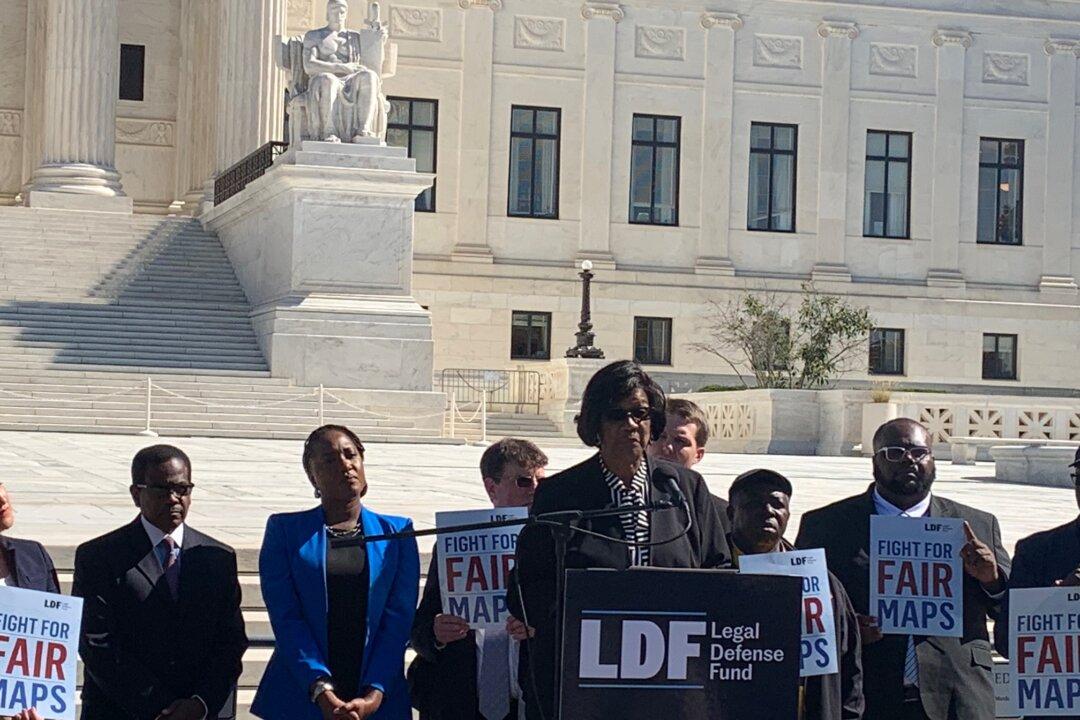Republican state lawmakers told the Supreme Court on Oct. 11 that the justices should overturn a ruling that the South Carolina legislature racially gerrymandered a congressional district because lawmakers used political, not racial, data to justify the redrawn map.
The Supreme Court frowns on racial gerrymanders as constitutionally suspect but has adopted a hands-off attitude toward partisan gerrymanders.





